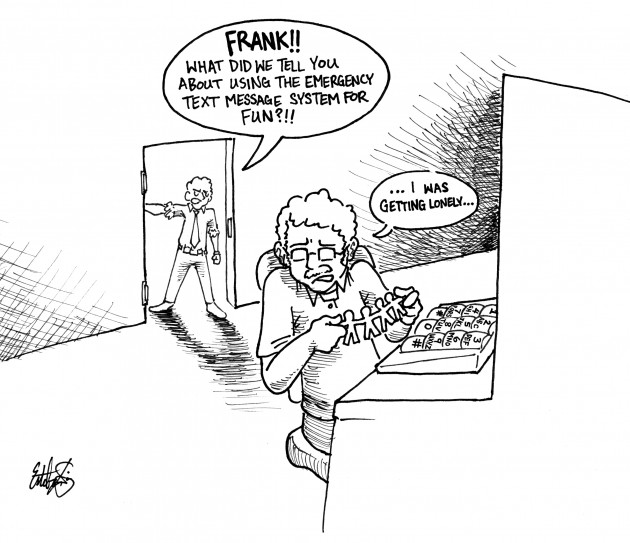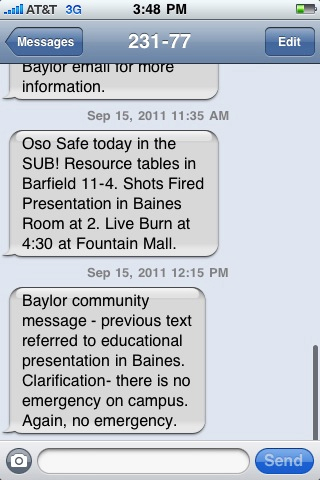

Some students didn’t feel “Oso Safe” when the university sent out a text message Thursday referring to a “Shots Fired Presentation” and “Live Burn” scheduled to happen that afternoon.
The text came to students through the same system that normally issues alerts about university closures or emergencies, and caused confusion among some students who wondered if there actually was an emergency on campus.
On many cell phones, including the iPhone that many students own, the words “Shots Fired” and “Presentation” ended up on different lines in the text message. This made it harder for students to realize that the presentation was in fact titled “Shots Fired,” and it implied that there was both a firearm discharged on campus and a presentation to come later in the day.
Although the text did clearly state that it was referring to resource tables and a presentation, it had to be followed up with another text approximately 40 minutes later that assured the Baylor community that there was “no emergency on campus,” but only an “educational presentation.”
The university was attempting to get the word out about Safety Awareness Day events being presented on campus, including a presentation about school shootings and a demonstration on fire safety.
But the first text never should have been sent. The university’s text message system has previously been used to alert students to important and/or dangerous situations on or near campus, such as tornado warnings or armed robberies in the area.
Students are not used to receiving friendly, purely informational texts from the university, and that is not something they should get used to.
Students know when we receive a text from Baylor that something important is happening, and that the information in the text could potentially help keep us safe.
The importance of these texts hasn’t been watered down by commercial messages or other non-urgent texts in the past. And it shouldn’t be now.
Between e-mail, Twitter and Facebook, Baylor has plenty of avenues for reaching students with any messages that are not of immediate importance. These are the avenues that should be used for commercial messages, as they have been in the past, and texts should be reserved for only messages of serious importance. This distinction is vital, lest students become frustrated and begin to ignore the university’s text messages, which could naturally result in disaster during a true emergency.
Baylor made an excellent choice when the university decided to use text messages to send out safety alerts. It was also a great decision to reach out to students and educate them on safety issues.
But as tempting as it may be to find other uses for the texting system, it’s simply not a good idea.
If an event really needs extra publicity, put up a few more posters. Don’t set off a false alarm.


